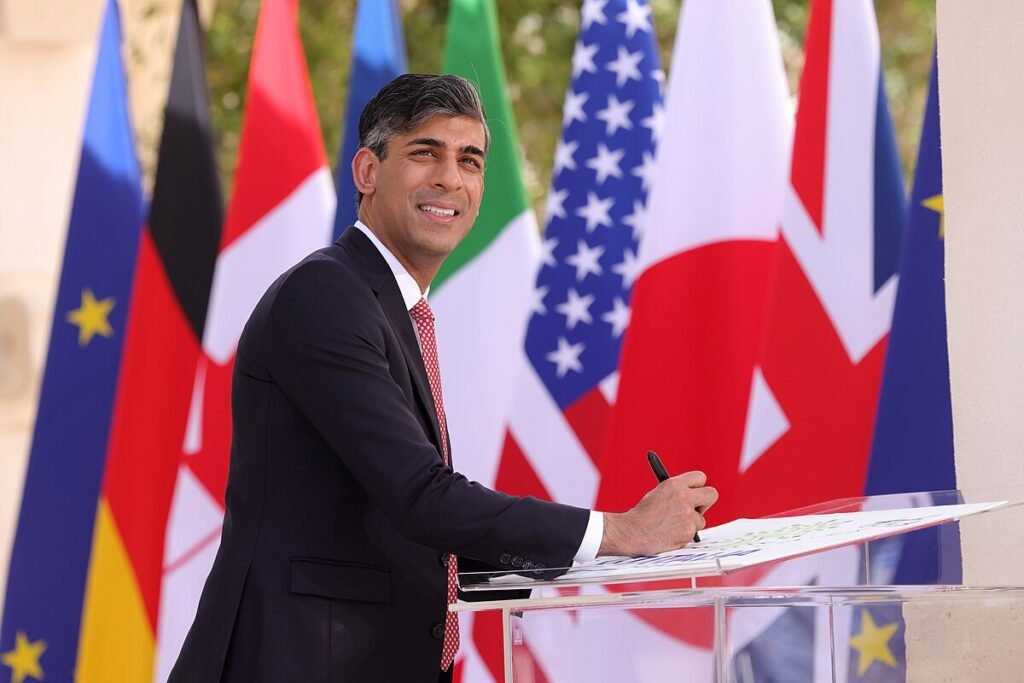In a pivotal debate ahead of the upcoming UK general elections, Prime Minister Rishi Sunak and Labour leader Keir Starmer clashed on a wide array of critical issues, revealing stark differences in policy and approach. The debate, crucial for shaping voter perceptions, highlighted contrasting visions between the Conservative and Labour parties.
Integrity in Politics
Sunak expressed deep frustration over a betting scandal and pledged stringent action against any party members found breaking rules. He underscored the Conservative Party’s commitment to integrity, announcing an internal investigation alongside the Gambling Commission. In response, Starmer criticized what he described as a culture of entitlement in politics and emphasized his party’s swift action in removing members involved in unethical behavior.
Economic Policies and Employment
Economic policies emerged as a central theme, with Sunak advocating for lower taxes and reduced welfare to stimulate job creation. He defended a compassionate welfare system while emphasizing support for the able-bodied workforce. In contrast, Starmer proposed an employment plan linked to reducing NHS waiting lists, criticizing current welfare policies as disconnected from the needs of ordinary citizens.
PM Rishi Sunak and Keir Starmer face each other in the final head-to-head TV debate of the general election campaign
— BBC Politics (@BBCPolitics) June 26, 2024
Watch and follow live ⬇️
Immigration and Border Security
Debate over immigration policy revealed significant divergence. Sunak pledged to secure borders and reduce illegal immigration, advocating for a stringent approach akin to the “Rwanda plan.” Conversely, Starmer focused on tackling criminal gangs facilitating illegal crossings, highlighting government failures in managing border security and small boat arrivals.
Local Governance and Services
Both leaders expressed concern over the state of local councils, with Sunak warning of potential bankruptcies under Labour governance. Starmer outlined plans for reforming council funding mechanisms, emphasizing sustainable growth and effective service delivery.
Women’s Issues and Equality
On women’s issues, Sunak advocated for legislative clarity on biological sex to protect single-sex spaces. Starmer emphasized respect for transgender rights alongside the protection of women’s spaces. Both leaders pledged to prioritize women’s interests but differed on the interpretation of equality laws.

During the debate, an audience member questioned the suitability of both leaders to be the next Prime Minister of the UK. Sunak responded by acknowledging frustrations but emphasized his tenure’s achievements in tackling inflation and securing borders. He urged voters to allow him to continue his work of tax cuts and national security.
Starmer, in his response, highlighted his experience in leadership roles, including significant reforms during his tenure in the Labour Party. He pointed to his track record in the Crown Prosecution Service and his commitment to changing the Labour Party to present a credible proposition for governing the country. Starmer appealed for voters to support change and promised improvements in public services, healthcare, and economic stability.
As the debate concluded, the contrasting visions presented by Prime Minister Rishi Sunak and Keir Starmer underscored the critical choices facing voters on July 4th. The debate not only highlighted stark policy differences but also set the stage for a contentious election campaign, shaping the future trajectory of the United Kingdom.
As voters weigh their options, the competing visions presented by Prime Minister Rishi Sunak and Keir Starmer will undoubtedly shape the outcome of the upcoming elections and the future trajectory of the United Kingdom.








